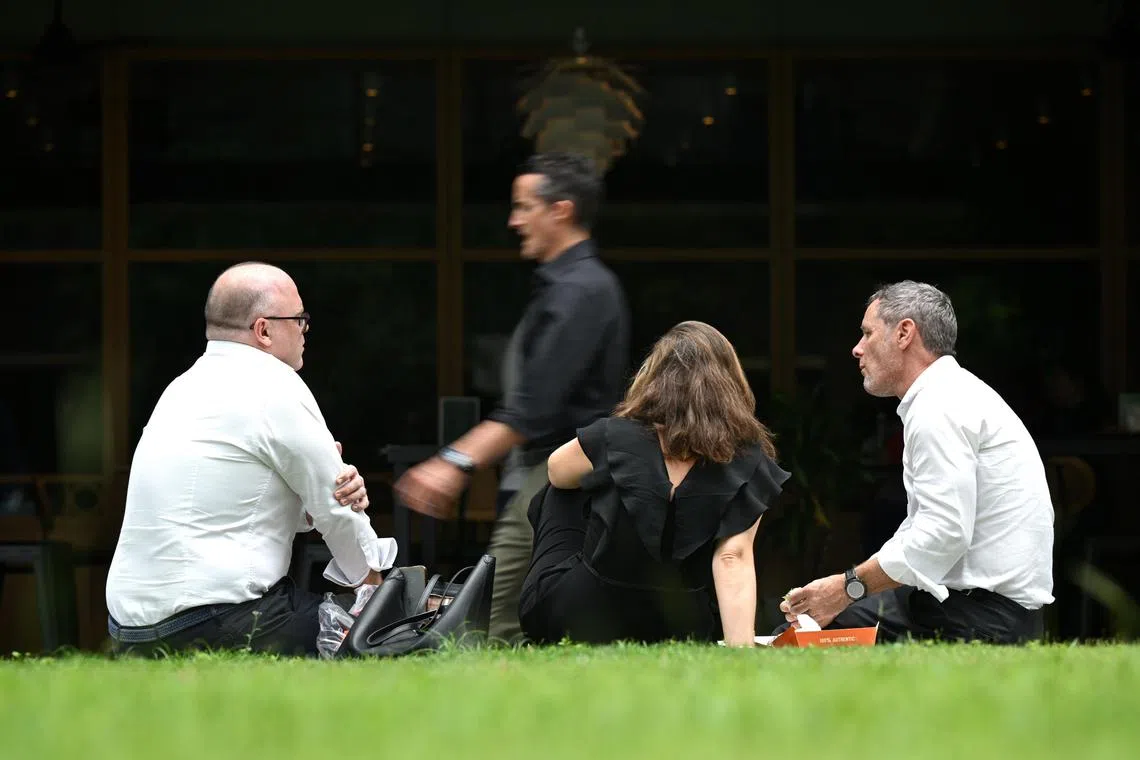20 years as PM
Balancing foreign workforce with social cohesion is a continuing, long-term challenge: PM Lee
Sign up now: Get ST's newsletters delivered to your inbox

Foreigners can enrich the Singapore identity, bringing talent, experience and different perspectives, said PM Lee Hsien Loong.
ST PHOTO: CHONG JUN LIANG
SINGAPORE - Singapore must continue to welcome foreign talent if it is to grow its economy and stand out in the world, but there must be careful calibration to maintain social cohesion, said Prime Minister Lee Hsien Loong.
Managing the inherent tensions between these two imperatives will be “the most difficult” long-term challenge that Singapore will face, he added.
“We have to do our best to generate political space for us, in order to feel our way forward and go as far as politically can be supported,” said PM Lee, who addressed the hot-button issue in a wide-ranging media interview.
“The concerns which people have about foreigners, about dilution, about values, about social impact, these are not unreasonable concerns. Because we are a society, we are a country, it is not just a city.”
Over time, the Singapore identity has strengthened, with shared values and ways of doing things as well as a sense of cohesion.
Foreigners can enrich that identity, bringing talent, experience and different perspectives, said PM Lee. But they also dilute it, at least temporarily, because of their different backgrounds.
“You can come from China, but you are not the Singaporean Chinese. You can come from India, but you are not the Singaporean Indian. And there is a difference between a Singaporean Chinese and a Chinese-Chinese, and a Singaporean Indian and an Indian-Indian,” he added.
While acknowledging this is a real concern, PM Lee said Singapore needs talent to develop new things, and can never have enough talent.
“We need bodies because there are jobs which there are no Singaporeans available to do, like construction. And there are also other jobs where there are Singaporeans available to do, but you would not have enough, and you need more,” he added.
The Government has managed the situation by bringing in foreigners in a controlled way that is good for the economy and complements Singaporean workers rather than putting them out of a job, without diluting social norms and mores in a way that can cause frictions and conflict, he explained.
Part of it involves making sure the physical infrastructure can handle the new additions, he said. “You have a big population, where do the foreign workers go, they need entertainment on weekends.”
It is also about educating the people who come here about Singapore’s norms, he added.
“They may not become Singaporean straight away, but you know that you are a guest and well, be a good guest,” he said.
At the same time, Singaporeans must also understand how important it is to have foreigners supplement the workforce, and make an effort to reach out to the newcomers, he said.
The Government, on its part, has been calibrating the numbers, through foreign worker quotas and levies at the lower levels, and the Employment Pass mechanism as well as salary thresholds and qualifications at the top end, among other measures.
In 2023, it also introduced the points-based Complementarity Assessment Framework
Citing these measures, PM Lee said: “We have to see how it works. It will take a bit of time to know. I am sure we will continue refining it, but we have to keep on doing these things and adjusting as we go along.”
Singapore does not have a lot of manoeuvring room, and “you cannot say, I send off all the foreign workers, and then tomorrow we will be okay”, he noted.
“That is why I said – feel our way forward. You cannot be on autopilot,” he added.
The issue of foreign workers will be raised in Parliament from time to time
Invariably, they will realise that such manpower is needed to keep companies afloat – from small and medium enterprises to multinational corporations – so that Singaporean workers can continue to have good jobs, he added.
“If we want Singapore to grow, then we have no choice but to work very hard to find ways we can have our cake and eat most of it. And that is a continuing, long-term challenge,” he said.
Amid countries turning inwards, and pursuing reshoring and homeshoring around the world, Singapore’s economy also faces other headwinds.
That is why Singapore has to be out there promoting freer trade and inter-cooperation, and developing networks of trade and investment, said PM Lee.
While other countries can think about reshoring, the option is not open to Singapore, which needs to buy components from other countries to make chips, for instance. The country’s market is also too small to absorb all the goods produced, he said.
With the World Trade Organisation now paralysed because many countries are doing their own thing, Singapore has had to work in other forums, said PM Lee.
For instance, the Republic has pushed for cooperation in new fields, such as the electric economy, and has concluded digital economy agreements with Britain and Australia, while also working on a multilateral Digital Economy Partnership Agreement with New Zealand and Chile which may see two more countries joining.
“We have to keep on being active. Smaller-scale platforms, but to us, these are all the more important,” said PM Lee.



